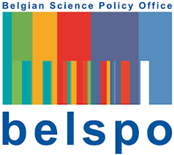About the project
Transparent impact measurement and reporting addresses accountability requirements and increases an organisation’s social license to operate. A sustainability assessment covering economic, social and environmental impacts informs stakeholders, and supports decision-making processes, governance and risk management. As such, it constitutes a powerful tool for public and private organisations characterised by competition for funding. These practices no longer merely concern multinationals, as also smaller companies and public sector and non-profit organisations (NPOs) are stimulated to disclose their performance information. For museums, impact measurement and reporting, besides increasing support from external stakeholders, (1) supports decision-making on the optimal allocation of resources, (2) guides strategic choices regarding content offer and commercial activities, and (3) contributes to increased organisational resilience in the context of disruptive events (e.g. terrorist attacks, pandemics, or financial crises).
This FEDtWIN project -ARTIMuSI (Action Research Towards Increased Museum Sustainability Impact)- funded by BELSPO, is organised along two main tracks.
The state of the art of impact assessment and reporting largely focuses on large companies and contested industries. ARTIMuSI’s first research track aims to scientifically advance the field of impact measurement and reporting for non-profit and public service organisations, using a mixed methods approach. It starts with a systematic literature review analysing research in both the larger domain of sustainability impact assessment for NPOs and public service organisations, as well as the fine arts and culture industry. Next, exploratory interviews with international museum managers uncover perceptions, motives as well as barriers. Third, we obtain complementary insights from a broad content analysis on impact assessment related documents. This is followed by a large-scale international survey of museum managers to quantitatively assess the motives, barriers and relevant indicators as well as the boundaries of impact assessment and reporting for diverse types of museums. These objectives will be achieved through close collaboration with RMFAB’s (Royal Museums of Fine Arts of Belgium) network and sector organisations such as NEMO and EMF.
ARTIMuSI’s second research track, based on action research, focuses on fine arts museums with RMFAB as focal organisation for the development of a tailored sustainability impact assessment tool and reporting strategy. This enables the evaluation of investments in collection, blockbuster exhibitions, research, conservation, education and heritage. We proceed in several steps, leveraging the information that is available and developing a cost-efficient alternative for lacking data. After initial stakeholder mapping, we conduct a materiality analysis by means of a broad survey and stakeholder interviews revealing important indicators and boundaries. Next, the indicators are translated into measurement instruments. Finally, the practical implementation is structured in a yearly impact reporting strategy, with an associated growth path which can be reproduced or adapted (bi-)annually. The process is integrated in existing practices at RMFAB, partner institutions or other stakeholders (e.g. Visit Brussels, Toerisme Vlaanderen, Wallonie Belgique Tourisme) to ensure efficiency and durability. While being tailored to RMFAB, the results should with relatively low efforts be replicable to similar institutions, and lead to insights through the development of a longitudinal, in-depth case study in the scientific domains of impact assessment, non-profit governance and stakeholder management.
Partners

|

|


